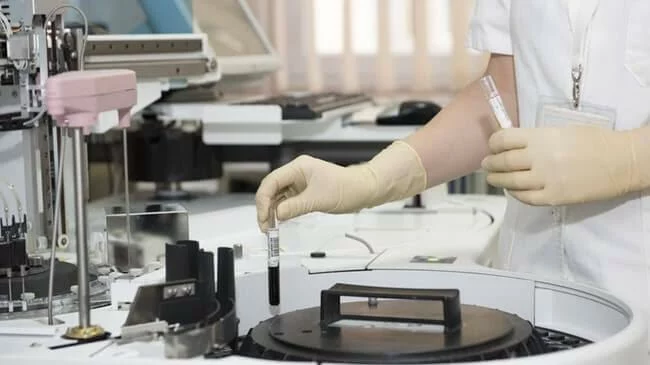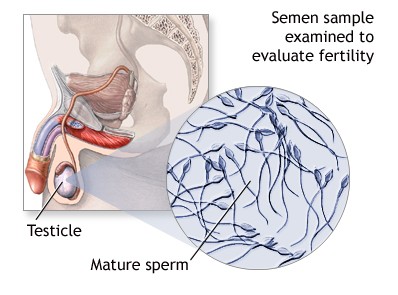
Semen Freezing
Department: Andrology
Estimated Cost : $100 - $500
Semen Freezing
Semen freezing, also known as cryopreservation, is a process in which sperm cells are collected and stored at very low temperatures for future use. This procedure is widely used in fertility treatments, as well as for individuals who may be facing situations where their fertility could be compromised, such as undergoing cancer treatment, surgery, or other medical conditions that may affect sperm production.
Semen freezing provides a way to preserve sperm for later use in assisted reproductive technologies such as in vitro fertilization (IVF) or intracytoplasmic sperm injection (ICSI). It is also used by men who wish to preserve their fertility before undergoing procedures that could impact their ability to produce sperm, such as chemotherapy or vasectomy.
When is Semen Freezing Recommended?
- Before Cancer Treatment:
Men diagnosed with cancer may undergo chemotherapy or radiation that can affect their sperm production. Semen freezing before treatment allows them to preserve sperm for future use. - Fertility Preservation:
Men undergoing certain medical treatments or surgeries that may affect their fertility, such as prostate surgery, can opt for sperm freezing to preserve their fertility. - Vasectomy:
Men who undergo a vasectomy and wish to preserve sperm for future use (in case they want to have children later) may choose to freeze their sperm. - Male Infertility Treatments:
In cases of male infertility, sperm freezing may be used to collect and store sperm for use in IVF or ICSI procedures. - Posthumous Fertility Preservation:
In some cases, sperm may be frozen for future use after a man’s death, allowing his partner to have children posthumously.
Process of Semen Freezing:
- Collection:
- Sperm is typically collected through masturbation in a private room at the fertility clinic. If a man is unable to produce a sample this way, other methods such as testicular aspiration or electroejaculation may be used.
- Analysis:
- After collection, the sperm sample is analyzed for quantity, quality (motility, morphology), and other parameters. The semen is then prepared for freezing.
- Freezing:
- The sperm is mixed with a cryoprotectant solution to protect it from damage during freezing. This helps prevent the formation of ice crystals, which can destroy sperm cells.
- The sperm is then slowly frozen in special vials and stored in liquid nitrogen at temperatures as low as -196°C (-321°F).
- Storage:
- The frozen sperm is stored in a cryobank (sperm bank) for as long as necessary. The sperm can be kept frozen for many years (even decades) without any significant loss of quality or fertility potential.
- Thawing and Use:
- When sperm is needed for fertility treatments, it is thawed carefully. The thawed sperm is then used in procedures like IVF or ICSI to fertilize eggs.
Success Rates of Semen Freezing:
- The success of using frozen sperm depends on various factors, including the quality of the sperm before freezing, how well it was frozen and thawed, and the method of assisted reproduction used (IVF or ICSI).
- In general, sperm frozen and stored properly can maintain high fertilization potential even after many years of storage.
- The thawing process is critical: If done improperly, it could affect sperm motility and viability, but modern techniques have significantly improved thawing success rates.
Benefits of Semen Freezing:
- Fertility Preservation:
- Allows men to preserve fertility before undergoing medical treatments that may affect sperm production.
- Flexibility:
- Freezing sperm allows men to delay starting a family without worrying about age-related fertility decline or health issues affecting fertility.
- Increased Fertility Options:
- Provides the option of using sperm for IVF or ICSI later, even if natural conception becomes difficult or impossible.
- Peace of Mind:
- Men diagnosed with conditions like cancer, which may impact fertility, can have peace of mind knowing they have options for future fatherhood.
Risks and Limitations:
- Sperm Quality:
- The quality of sperm at the time of freezing can influence the success of future fertility treatments. Low-quality sperm may have reduced viability after thawing.
- Thawing Loss:
- Sperm quality can decline during the thawing process, and in some cases, the sperm may not survive. This is why it is recommended to freeze multiple samples if possible.
- Cost:
- Cryopreservation and storage can be expensive, and there may be ongoing fees for long-term storage of frozen sperm.
- Emotional and Psychological Impact:
- The decision to freeze sperm is often made in the face of a medical condition or life circumstances, which can have emotional and psychological consequences. Counseling may be beneficial for individuals considering sperm freezing.
Factors Affecting Sperm Freezing Success:
- Age of the Man:
- Sperm quality tends to decline with age, and this can impact the success of freezing and thawing. However, sperm freezing is still a viable option for men in their 30s or 40s.
- Sperm Health:
- The better the sperm quality before freezing, the higher the chances of successful fertilization and pregnancy in the future. Sperm with good motility and morphology tends to survive better through the freezing and thawing process.
- Storage Duration:
- While sperm can be stored for many years, it is important to consider that the chances of successful fertilization may slightly decrease over long periods of storage, particularly if sperm quality was suboptimal when frozen.
When to Consider Semen Freezing:
- If you're diagnosed with a medical condition (like cancer) that requires treatments such as chemotherapy or radiation therapy, semen freezing should be done before starting treatment.
- If you're planning to undergo a vasectomy and may want to have biological children later, freezing sperm is an option.
- If you plan to delay having children for personal, professional, or other reasons but want to preserve fertility.
- If you have a known fertility issue that could worsen over time.



 Get an Opinion
Get an Opinion
